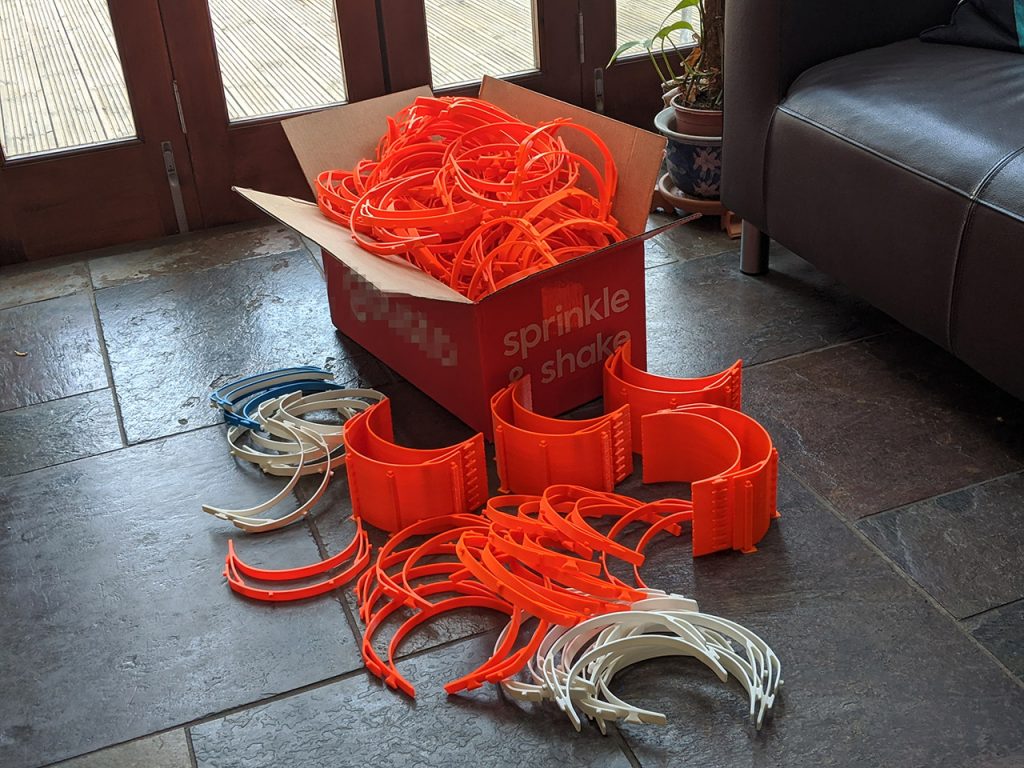The effort to provide personal protective equipment (PPE) to healthcare workers has been a main item on the news agendas for weeks.
Members of the School of Computing’s technical staff have played a key role in stepping up to provide a face shields for local health care providers including Pilgrims Hospices, east Kent’s largest palliative care charity. Along with colleagues from Kent School of Architecture and Planning and the School of Engineering and Digital Arts (EDA), staff have collaborated to design and fabricate 1700 face shields so far.
Equipment and tools from the School of Computing’s makerspace, The Shed, which is normally used for student projects, is now being used to design, test and produce PPE.
Dan Knox, Senior Technician in The Shed spoke about the challenges of producing equipment whilst maintaining social distancing. ‘On one of our most recent projects, we have been working very closely with the East Kent Hospital Trust to produce a shield for their optomology machines. We obviously can’t go into the hospitals to physically measure the machines, so to help us, they had cut up a large mother’s day card and added ribbon to create a mockup that we could use for siting bits on the machines. Thankfully this homespun approach worked and the shield we made fits perfectly.’
As well as using university premises, the shields are also being printed in the homes of staff. Mark Wheadon, Senior Computing Fellow has turned his dining room into a workshop with five 3D printing machines producing over 900 shield frames so far. Mark said ‘We are making our way through a huge batch of “Prusa orange” filament which is being used exclusively for PPE related printing. Thankfully the dining room has a door as the printing can get quite loud with all of the machines working at once.’
Lots of other schools and universities are also helping in the efforts to provide 3D printed PPE equipment to health care providers. The difference for the University of Kent is how closely staff have been working with providers, the scale that can be achieved and the ability to produce bespoke equipment.
Dan said, ‘I think it’s fair to say this has been a joint effort from all the schools involved. Hats off to the professional services technicians of the University, they are really modest on their contribution to the project.’
Kent Innovation and Enterprise has been co-ordinating enquiries about PPE equipment and arranging funding. This is being used to purchase the raw materials needed for production of the shields and to increase the number of printers working on them.

